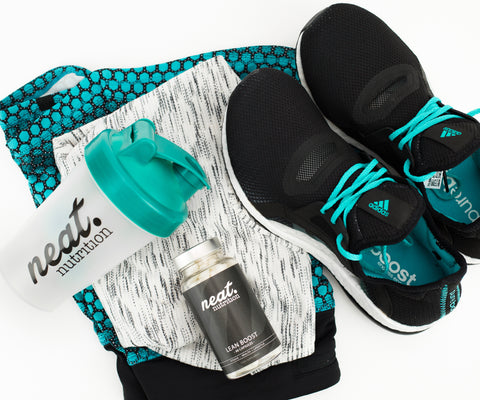Marathon Training: Final Week

So it’s the final stretch of your training prior to the marathon. “What should I be doing?” I hear you ask. Lots and very little at the same time!
Obviously you need to be tapering your training; that goes without saying. Tapering is vital in your preparation for any competition as it allows maximal:
- Recovery from months of physical training
- Rest
- Topping up of glycogen stores
- Psychological preparedness
Recovery
Tapering from training means exactly that. Not a cessation of training, but a gradual reduction in your activity. The reason for this is two-fold: Firstly you try and reduce muscular catabolism (breaking down of muscle). If you’ve trained properly then you don’t need to be adding any more muscle or trying to improve your fitness. If you haven’t, trying to do it in the last two weeks will not work and likely hinder your performance. Secondly, if you continue to train and are unlucky enough to sustain an injury, the chances of you recovering fully before the race are reduced. You do however, need to keep your body “ticking” over. Think of it in the same way a race car is revved up prior to leaving the start line.. It’s not maximal revs, but enough to be able to perform on cue. I won’t go into specific tapering plans, I’m sure you all have your own personalised ones.
Rest
This is important from a physical point of view i.e. in order to improve the rate of your recovery, but also psychologically. I know from personal experience, that when I’ve been very busy and not rested properly prior to an event, I always have a sub-optimal performance. So make sure you’re getting enough sleep and not having too many late nights. Have a read of the previous article on Injury Prevention for advice on sleep.
Carb Loading

I’m sure you’ve all heard of this, but what does it mean and why do it? We’ll be looking at carbohydrates and the storage of them in a later article, but put simply, the idea is to load up your energy stores. Glycogen is the body’s carbohydrate source and is uses it as fuel for the first 15-20 miles (depending on the individual) of a run. When it’s almost completely out, you hit that infamous “wall”. As more and more glycogen gets used up, your body switches over to fat metabolism. This is good because you have more fat reserves in your body compared to glycogen, but the body is more efficient and feels better using glycogen. The trick is therefore to try and use glycogen for as long as possible during you race, by ensuring your body has a “full tank” of glycogen. So how do you go about carb loading? Well, a big bowl of pasta the night before is not the way to do it. During the last week and especially the last three days, you need to increase the amount of carbohydrate you’re having. You should be looking at 60-70% of your meal composition.
Isn’t having lots of carbohydrate going to make me gain weight, I hear you ask? Yes, a small amount of weight, perhaps in the order of a kg. However, part of that weight will be water and part of it glycogen, so in terms of race day it’s definitely worth it. The benefits of carb loading have been well known for years and studies have shown that comparing a high carbohydrate diet to a low carbohydrate one prior to an endurance event can triple performance. There’s a reason why all the top athletes do it.
Psychological Preparedness
The impact this can have on your performance is just as significant as any of the training you dedicated so many hours to in the last few months. Go into a race too confident or too relaxed and you won’t perform as well as you can. Equally go into a race too excited or too tense and you’re just as likely to perform poorly. The ideal state of mind involves just the right amount of being:
- Relaxed
- Confident
- Motivated
- Focused
Try and visualise the race. Think of various stages, how you’ve felt in the past at those times when you’ll be struggling and what your thought process is going to be on the day. If you know, for example, that when you get to mile 18 you’ll be hitting the wall, prepare for it. Whether that means a relaxing image of your family, some lyrics to a song, a joke, have that ready to pull out of the bag. During the psychological preparation, make sure you focus on the positive achievements of your training, but take the negative ones and flip them into positives. I’ll give a personal example: When I’m running, my biggest sticking point both physically and mentally is between miles number 12 and 16. I know that I haven’t hit the wall, I know I’ve only run 12 miles and usually I know that I have anything from 38 to 90 to go. The first time I hit that mental block, I dropped to a slow walk, told my buddy to keep going without me and was trying to work out how far the next aid station was in order to call it a day. As I passed that 16th mile, I started to speed up and feel better and better. I got to the aid station which was around the 17th, re-supplied and flew out without a second thought. Now every time I feel the same way (and for some reason it’s every single race), my mantra is: “Hang in there, keep going, it’ll soon pass. Remember that time you…”
So, good luck for your race and just remember, that extra forkful of spaghetti might make you go pasta! (See what I did there?)
This blog is written by friend of Neat, Dr Nick Ambatzis MB BS, MSc (SEM), MRCGP.
Nick is a General Practitioner specialising in Sports and Exercise Medicine. He completed his medical degree at University College London Medical School in 2002. Nick worked for almost ten years as a junior surgeon and spent three years in Trauma & Orthopaedics. He attained a Masters in Sports and Exercise Medicine and subsequently trained as a GP practising in Paddington.
From an early age, Nick has been both a keen cross-country runner and water-polo player, having competed at college level. Nick is also an accomplished ultra-marathon runner, having competed in many cross-country and cross-alpine races, ranging from 50-100 miles. He has also been a Crossfit and Crossfit Endurance coach.
